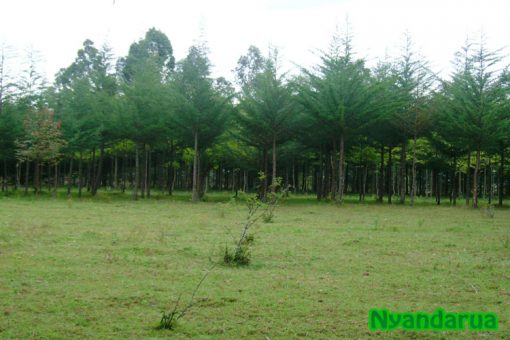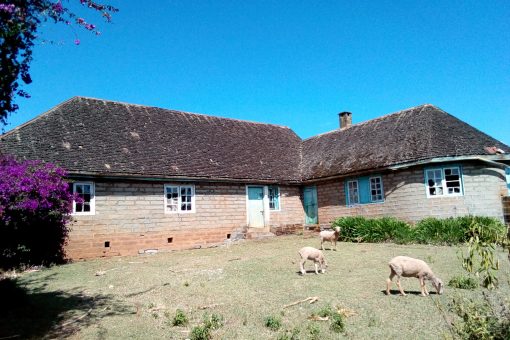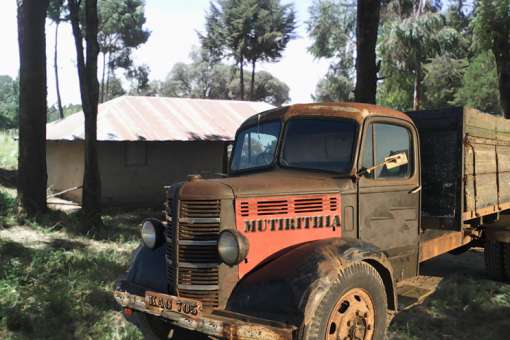Mr. Gachogu was the serious administrator who oversaw the construction of the first classrooms at Munyeki. But he was also the playful headmaster who came to class with a chameleon (Kiimbu) on his hair, sending the kids scampering for safety while screaming at the top of their lungs.
Other times he brought a lizard (njagathi) or a frog (kiura) which he stashed in his pocket. He then invited an unsuspecting kid to retrieve a “piece of candy” (thwiti) from that pocket. Being that we craved sweets back then, but never had the money to buy, such an invitation was always tempting although we had learnt to expect anything from this personable headmaster of ours. On a good day, Mr. Gachogu actually had candy in his pocket and no reptile or amphibian crawling inside. Our classmate who took the challenge on such a day, got to enjoy the candy while we salivated, watching enviously.
I was never one of those volunteer kids who stuck their hands in Mr. Gachogus’ pockets. I was creeped out by all crawling creatures and there was not enough candy in the world to make me accept such a dare. But we had plenty of fun with our easygoing headmaster, teacher and friend. He made learning easy and fun.
Parents were also very comfortable with Mr. Gachogu. I remember one mother who occasionally interrupted Mr. Gachogu’s classes. This woman came from a ridge beyond Munyeki, meaning, whenever she visited OlKalou town, she had to pass through Munyeki Primary where her children went to school with us. Munyeki’s first two classrooms had wooden windows which we kept closed to keep the cold out and also to stop students from looking outside during class. This mother came knocking hard on the closed window “tahingura ndiricha mwarimu njaririe Mary na Monica itanathii Karau” translation “open the window teacher so I can talk to Mary and Monica before I proceed to OlKalou town” Mr. Gachogu instructed the student sitting next to the window to open it, otherwise she would not stop. When the window was opened she leaned in through the window to address her children in front of the entire class. She started her instructions:
“Ndaathii Karau kugura chukari ninogete ni kunyua ndubia. Nindatiga ucuru thaburia ini munyue mwainuka no nduri chukari, na mutikaninire ciana iria nini. Muchoke muthii mugunda mugathikirire waru, o mundu makinya ikumi. Mwarikia mukahure thukuma cia kuria ngima hwai ini. Monica ukere thukuma icio, Mary ndakeraga wega. Ngicoka ndakora mutarikitie wira ucio ndamuhee, nimukumenya kuria mukurara. Niuguo, niwega mwarimu” Translation:
“I am going to OlKalou town to purchase some sugar, I am tired to taking tea without sugar. I have left a sufuria of porridge for you to take after school, but it doesn’t have sugar, but don’t finish for the younger children. Then go to the farm to weed and mulch the potatoes, ten square steps each. When finished, harvest some Sukuma Wiki (collard greens) for eating with Ugali tonight. Monica should chop the collards because Mary is not good at chopping. When I return, I want all those chores completed otherwise you figure out where to spend the night tonight. That’s all, thank you Teacher”
Mr. Gachogu bid farewell to this mother as if nothing happened and class would resume. It was not a big deal. We all came to expect that hard knock on the window, and we sat quietly as our classmates received their instructions from their mother and that story ended right there.
And I thought my mother was embarrassing.



